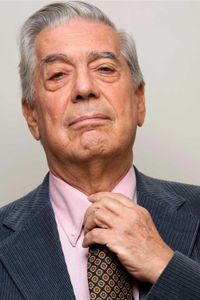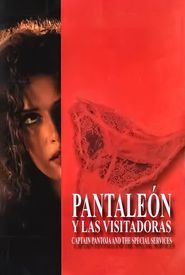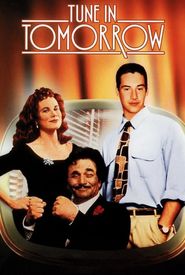Jorge Mario Pedro Vargas Llosa, a celebrated Peruvian literary luminary, is also widely recognized as Mario Vargas Llosa, a multifaceted individual whose impressive repertoire of talents encompasses the realms of writing, journalism, essayism, academia, and politics, with the added distinction of holding Spanish citizenship.
Born on March 28, 1936, Vargas Llosa has emerged as one of the most influential and prominent novelists and essayists to have hailed from Latin America, and is indeed a leading figure of his generation, leaving an indelible mark on the literary landscape.
Mario Vargas Llosa, a renowned Peruvian writer, gained widespread international recognition in the 1960s with the publication of his influential novels, The Time of the Hero, The Green House, and Conversation in the Cathedral, which showcased his remarkable storytelling prowess.
Throughout his illustrious career, Vargas Llosa has demonstrated his versatility as a writer by producing an impressive array of literary works, spanning multiple genres, including literary criticism, journalism, and fiction.
He has a remarkable ability to explore a diverse range of themes, from the humorous and lighthearted, as seen in his comedies, to the dark and suspenseful, as evident in his murder mysteries and political thrillers.
In addition to his novels, Vargas Llosa has also delved into the realm of historical fiction, allowing him to share his profound understanding of the human experience with his readers.
As a result of his tireless dedication to his craft, Vargas Llosa has become a celebrated figure in the literary world, widely regarded as one of the most important and influential writers of his generation.
Mario Vargas Llosa's literary oeuvre is characterized by a profound connection to his native Peruvian heritage and society, as well as his own personal experiences, which have informed his creative output over the years.
As his career has progressed, Vargas Llosa has demonstrated a remarkable ability to adapt and evolve, tackling themes and subjects from diverse geographical regions and cultural contexts.
In his non-fiction writings, Vargas Llosa has been a vocal critic of nationalism, addressing this complex and multifaceted issue in various parts of the world.
Notably, his writing style has undergone a significant transformation, moving away from the literary modernism of his early work and embracing a more playful and postmodern approach, marked by a willingness to experiment and push boundaries.
Vargas Llosa's political trajectory has been marked by a series of significant developments, with his involvement in the public sphere spanning multiple decades.
In the early stages of his career, Vargas Llosa was a vocal supporter of the Cuban revolutionary government led by Fidel Castro, reflecting his initial enthusiasm for the ideals of socialism and his admiration for the Cuban leader's charismatic leadership.
However, as time passed, Vargas Llosa's views on the Cuban government began to shift, and he became increasingly disillusioned with its policies and practices. A pivotal moment in this transformation was the imprisonment of the renowned Cuban poet Heberto Padilla in 1971, which Vargas Llosa saw as a stark betrayal of the revolutionary ideals that had initially inspired him.
In the 1990s, Vargas Llosa decided to enter the political fray, running for the Peruvian presidency in 1990. His campaign platform was centered around classical liberal reforms, which he believed would help to revitalize Peru's economy and promote greater individual freedoms.
Despite his best efforts, Vargas Llosa ultimately lost the election to Alberto Fujimori, a result that was widely seen as a setback for his political aspirations.
Mario Vargas Llosa, a renowned Peruvian writer, politician, and Nobel laureate, has garnered significant attention for his thought-provoking statement, "Mexico is the perfect dictatorship," which he uttered in 1990. This phrase, uttered nearly three decades ago, gained widespread notoriety and became a ubiquitous aphorism throughout the subsequent decade.
Notably, Vargas Llosa is also recognized as one of the 25 prominent figures participating in the Information and Democracy Commission, a prestigious initiative launched by Reporters Without Borders, a leading international organization dedicated to promoting press freedom and defending journalists worldwide.
Vargas Llosa's illustrious career has been punctuated by an impressive array of accolades and honors, with the most prestigious being the Nobel Prize in Literature, awarded to him in 2010.
In addition to this esteemed recognition, he has also received the Rómulo Gallegos Prize, a prestigious award given to outstanding literary achievements.
Furthermore, Vargas Llosa has been honored with the Prince of Asturias Award, a highly respected prize that recognizes excellence in various fields, including literature.
He has also been bestowed the Miguel de Cervantes Prize, widely regarded as the most important literary award in the Spanish-speaking world.
The Jerusalem Prize, a coveted award that recognizes writers who have made significant contributions to world literature, has also been bestowed upon him.
In addition to these esteemed awards, Vargas Llosa has received the Carlos Fuentes International Prize, a prestigious award that recognizes outstanding literary achievements.
Finally, he has been honored with the Pablo Neruda Order of Artistic and Cultural Merit, a high honor that recognizes his significant contributions to the world of literature.
















